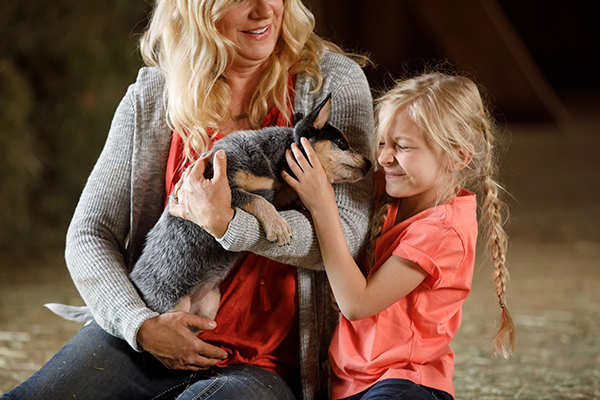Puppy Socialization – Fear Periods

In our previous article on getting started with puppies, we talked about early socialization focusing on your puppy’s early acclimation to his surroundings, people and other animals. In this article, we will discuss fear periods. There are two major fear periods in a puppy’s socialization. One is at 8-11 weeks and the other is 6-14 months. These fear periods are evolutionarily programmed and are protective for dogs in the wild. Even though dogs live as pets now, these genetically determined behavioral patterns are still present. Early socialization allowed wild puppies to become accustomed to their early environment but learning to fear strange situations, as they matured, was necessary to protect them from predators and other dangers.
First Fear Period
The first fear period from 8-11 weeks coincides with the second socialization period when puppies are going to a new home and facing a whole new environment and set of situations. During this time much care should be taken to not frighten your puppy. Children or other animals in the home should not be allowed to inadvertently hurt the puppy. Young children in their excitement may grab, chase or handle the puppy in ways that he will perceive as scary.
Children and Puppies
When young children are interacting with the puppy during this time a parent should always be present to monitor this activity as children may not pick up on body behavior that can indicate fear or anxiety. Slowly introduce your puppy to new people and situations and always allow him the option to retreat if he is anxious or uncomfortable. Learning at this age is permanent and learned fear behaviors can be difficult or impossible to extinguish. There is a growing body of research that shows significant traumatic experiences at this age can lead to a lifetime of behavioral issues.
Second Fear Period
The second fear impact period occurs between 6 to 14 months of age. Generally, this critical age occurs earlier for small dogs and later for larger ones. Development of these fears tends to be more about situations than to specific people. If your puppy seems fearful of a new situation, forcing him into it is the worst thing to do. Fear should be handled with patience and kindness. Allow him to retreat and try again from a distance where he feels comfortable. Praise positive behavior. Additionally, routine training during this period can help set him up for success. This will allow him to work things out while building self-confidence.
Lifelong Socialization
Remember, socialization is a lifelong process, not just something that is finished at a year of age. Your pet’s response to situations may change over time, so continuing to reinforce positive behaviors are important. Be aware that some dogs are innately nervous and fearful and may need extra time and patience. If at any time it seems that your puppy is not progressing well, ask your veterinarian for help or for a referral to a behavior specialist. A little extra time and investment now will pay off in good behavior for the rest of your dog’s life.



